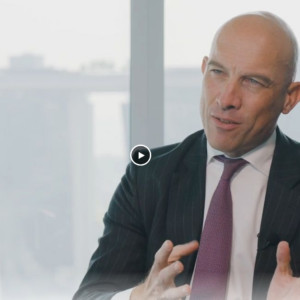Will 2024 be an attractive vintage for private equity?

The record-high dry powder reserves suggest potential for significant private equity activity this year, though investors need to be aware of significant risks.
The past few years, including 2023, have been a rollercoaster for investors in public markets, filled with unprecedented waves of shocks, including a pandemic, monetary stimuli, high inflation, and quick increases in interest rates to levels not seen in more than a decade.
However, if we look at the private equity asset class, the ride has been less bumpy in comparison, exemplifying once again some of the main virtues of private equity: attractive performance across cycles, outperforming public markets over long periods of time and lower volatility.
While private equity has seen less turmoil than the public side of the equation, in 2024, we expect to see the same headwinds to the asset class as in 2023, including a challenging fundraising environment, tight debt markets and limited liquidity opportunities for private equity fund investors.
This desire for liquidity in a difficult IPO and M&A environment is creating an opportunity for well-capitalised co-investors, secondary fund players and capital solution providers, to provide much-needed capital for fund managers.
With access to capital as the main priority, co-investment platforms have developed into an important source of equity capital for general partners (GPs) to get their transactions done; particularly important is having dedicated co-investment capital available to GPs irrespective of market cycles or dislocations to opportunistically fill voids in this marketplace.
With traditional exit options for private equity-owned companies tightening and limited partners (LPs) suffering increased duration and reduced net inflows, or worse yet, net outflows, from their private equity portfolios, LPs and GPs are also increasingly turning to the secondary markets to generate much-needed liquidity.
The secondary market is one of the few options for liquidity, which is in greater demand than at any other time in recent years. But given that capital formation generally hasn’t kept pace with deal supply, it has created an attractive supply and demand imbalance, that we believe could persist for a period of time.
Capital injections
Aside from providing liquidity, private equity firms are also utilising this capital as an injection into their companies to foster growth, complete add-on acquisitions, or raise a continuation vehicle to maximise the value of assets.
Although the pace of private equity fundraising overall has seen a slowdown compared to the previous year, going into 2024 we believe the record-high dry powder reserves suggest potential for significant private equity activity as values slowly recover and conditions improve. However, an inefficient capital distribution despite this abundant dry powder means many areas are still lacking funding which is where specialist capital solutions providers can also play a role in the upcoming year.
The ability to provide capital in the form of preferred or structured equity, when debt limits have been reached and equity dilution is not an option, has been another way to seize opportunities amid this challenging environment.
Risky business
Private equity investors must however be aware of significant risks in 2024. Firstly, a potential negative surprise on the inflation side could reverse, yet again, the expectations of lower interest rates and tightening capital markets.
Also, in a world where private equity managers can’t benefit from cheap financing or multiple expansion at the time of selling their investments, there is a risk of selecting managers without the adequate toolkit to boost growth and drive operational efficiencies to achieve returns.
And lastly, the level of risk in investments could be misleading. This is due to exceptional growth, in the past years likely being cyclical or artificially high, due to one-off situations (e.g. Covid aid) or recent price increases, rather than considering it to be secular.
Nevertheless, 2024 is the year where co-investment, secondaries and capital solutions practices will continue to screen opportunities and deploy capital globally, at record levels in companies that provide business critical solutions across industries. These include software and technology, healthcare, business services, industrials and unique consumer businesses.
In private companies, alongside solid private equity managers, opportunities will emerge away from the daily volatility of public markets and the risk of redemptions and repricing due to interest rate expectations.
Additionally, in this environment there will be greater reliance on a manager’s ability to utilise skill-based value-creation levers. Pulling these levers requires significant skills and resources that, not all private equity managers possess. This means there will be a performance dispersion that tends to favour higher-quality companies with well-defined strategic and operational improvement plans, versus relying on financial engineering tactics and leverage to generate returns.
From an investor point of view, this is set to be an attractive time to be involved within the co-investment, secondaries and capital solutions space as a liquidity provider to private equity managers, seeking to preserve fund value in the current market environment.

José Luis González Pastor, managing director of Neuberger Berman Private Equity





